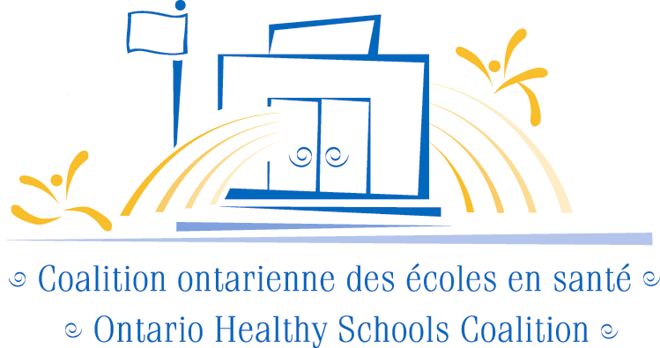Building on its history of research and knowledge mobilization, the Hamilton Wentworth District School Board (HWDSB) has established a partnership with the Offord Centre for Child Studies at McMaster University and four exceptional organizations to build communities of practice aligned with the four key components of Ontario’s well-being strategy

OHSC Collaborative Inquiry Project
Knowledge Network on Student Well-being
Research Report
Collaborative Inquiry (CI) on Healthy Schools Practices
Throughout the 2018-2019 school year, 4 educators from four different schools in two unique school boards (rural vs. urban) in Southern Ontario, participated in a collaborative inquiry project. The project was supported by the Ontario Healthy Schools Coalition with funding from the Knowledge Network on Student Well-being via the Ontario Ministry of Education. The participating educators worked together to develop their inquiry question, and shared their learnings and ideas to improve their work in the classroom and school. They also discussed ways to deepen student’s learning.
The latest research suggests that inquiry-based approaches empower teachers to advance their practice and student learning. According to the Ministry of Education, it is through this grassroots learning style that educators work together to improve their understanding of what learning is (or could be), generate evidence on what’s working (and what’s not), make decisions about next, and take action to introduce improvements and innovations.
This collaborative inquiry research project explored the following question: In educating students about fundamental physical literacy skills through a healthy school framework, would their physical activity levels, sense of well-being, and sense of acceptance and willingness to be physically active, improve?
Knowledge Network on Student Well-being
Research Report
Collaborative Inquiry (CI) on Healthy Schools Practices
Throughout the 2018-2019 school year, 4 educators from four different schools in two unique school boards (rural vs. urban) in Southern Ontario, participated in a collaborative inquiry project. The project was supported by the Ontario Healthy Schools Coalition with funding from the Knowledge Network on Student Well-being via the Ontario Ministry of Education. The participating educators worked together to develop their inquiry question, and shared their learnings and ideas to improve their work in the classroom and school. They also discussed ways to deepen student’s learning.
The latest research suggests that inquiry-based approaches empower teachers to advance their practice and student learning. According to the Ministry of Education, it is through this grassroots learning style that educators work together to improve their understanding of what learning is (or could be), generate evidence on what’s working (and what’s not), make decisions about next, and take action to introduce improvements and innovations.
This collaborative inquiry research project explored the following question: In educating students about fundamental physical literacy skills through a healthy school framework, would their physical activity levels, sense of well-being, and sense of acceptance and willingness to be physically active, improve?
What is the Knowledge Network for Student Well-Being
The Knowledge Network for Student Well‐Being is a project that connects front‐line educators with evidence‐based practices that improve student wellbeing. It is one of four planned knowledge networks that are part of the Knowledge Network for Applied Education Research (KNAER). The Knowledge Network for Student Well‐Being is a joint project of the Hamilton‐Wentworth District School Board and the Offord Centre for Child Studies at McMaster University.
What is Student Well‐Being? Student well‐being has many parts to it. It includes individual, community, and broader societal factors. It is more than just the absence of illness. Promoting well‐being in education goes beyond the adoption of any particular practice or body of evidence. Well‐being requires a broad, integrated view of wellness. Schools are excellent places to build the skills, attitudes, knowledge and habits that support well‐being for all students.
Who are the partners in the Knowledge Network for Student Well‐Being?
The Offord Centre for Child Studies at McMaster University brings together researchers who are interested in all areas of child well‐being. The Offord Centre conducted the Ontario Child Health Study in 1983 that first identified that 1 in 5 Ontario children were experiencing mental health difficulties. Researchers at the Offord Centre are conducting the current follow‐up to the Ontario Child Health Study, and have other research programs that examine physical health and well‐being, family violence, developmental disorders, and a variety of other aspects of well‐being.
The Hamilton‐Wentworth District School Board has nearly 50,000 students in over 100 schools in urban, and rural settings. The Evidence‐Based Education and Services Team (E‐BEST) is the research department supporting decision‐makers at the HWDSB, and has a long history at being at the forefront of knowledge mobilization and implementation research within the Board. Who else is involved in the Knowledge Network for Student Well‐Being?
The Knowledge Network has also joined with four existing communities of practice who each bring special knowledge and expertise to an aspect of wellbeing.
- School Mental Health ASSIST is our community of practice for Positive Mental Health in schools.
- The Social Planning Network of Ontario brings expertise in Equity and Inclusive Education.
- PREVNet is a network of leading researchers and organizations, working together for Safe and Accepting Schools.
- The Ontario Healthy Schools Coalition is a dynamic and innovative coalition supporting Healthy Schools for the optimal health and learning of Ontario’s children and youth.
These organizations reflect the four policy areas identified in Ontario’s Well‐Being Strategy for Students, which are:
- equity and inclusive education,
- healthy schools,
- positive mental health,
- and safe and accepting schools.
Together with the network leaders they will work together to connect front‐line educators with leaders in the field, in order to enhance uptake of evidence‐based practices. They will also work with front‐line educators to identify promising practices, and to engage researchers to help educators in evaluating these practices.


